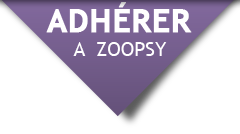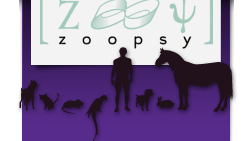| |
Concepts in Behavior - Section I: Natural Science of Behavior
S.G. Friedman (1), T.M. Edling (2) et C.D. Cheney (3)
Revue : Clinical Avian Medicine
(1)(3) Department of Psychology, Utah State University, Logan, UT, USA.
(2) Petco Animal Supplies, Inc., San Diego, CA, USA.
Of all the many facets of parrots? total wellness supported by veterinarians, perhaps the most challenging of all is behavior. Having adapted over eons for survival in the free-range environment, many parrot behaviors run counter to those necessary for success in our homes. This challenge is intensified by parrots? extraordinary ability to learn maladaptive behaviors from their often-unwitting caretakers. Veterinarians also face educational challenges as their pursuit of a comprehensive and cohesive knowledge of behavior often is made difficult by the fractured development of the science itself - the natural science of behavior historically crosses two disciplines, zoology and psychology, each with its own purpose and methods. Finally, among professionals and laypersons alike, there is a general lack of awareness that a science of learning and behavior exists within the field of psychology. A sound understanding of this science, known as behavior analysis, is critical to successfully keeping parrots as companions. These challenges contribute to the current state of affairs in which too many pet parrots unnecessarily fail to thrive due to behavior problems.
In this chapter, we provide the foundation for a comprehensive and cohesive understanding of behavior as it relates to facilitating the lives of companion parrots. To meet this goal, the following topics are discussed: free-range behaviors as a basis for predicting and interpreting the behavior of parrots in captivity, a simplified model for systematically analyzing the functional relationships between behavior and environmental stimuli, and the teaching technology based on the fundamental principles of learning and behavior. With this information, veterinarians will be able to better guide their clients to proactively teach their parrots successful companion behaviors and effectively analyze and resolve behavior problems that inevitably arise.

Clinical Avian Medicine, Harrison G.J. and Lightfoot T.L. (Eds.)
Lien
|
|


